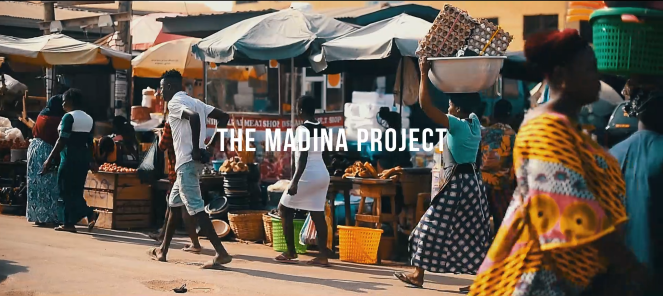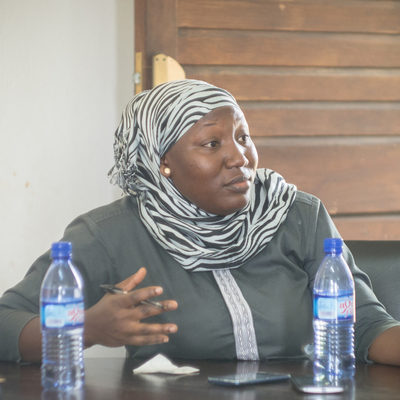Rashida Alhassan Adum-Atta
Market stalls stocked with vegetables, butchers displaying their best cuts of meats, vendors soliciting quick and easy street food. What is more ordinary or mundane than food? This short clip, photographed by David Kwakutse and designed by me, highlights the food value chain from market, post market and selection, and the networks involved. It pays attention to the everyday interactions people have with and around food and the symbolic role of religion in valuing food, looking beyond the biological role of food and the economic relevance of the market space.
As part of the Madina project, I focus on food exchanges among Muslims and Christians and to a lesser extent, practitioners of African Traditional Religion, in Madina Zongo; a diverse neighborhood in Accra, the capital of Ghana. Christians and Muslims in this area have unique encounters in some socio-cultural settings that involve food and eating presumably because some meals are perceived to be better prepared by adherents of one religious group than the other. Consequently, my research takes food as an entry point to the material study of religion in plural settings. I investigate how food acts as a matter for inclusion and exclusion in everyday social relations and explore its implications for coexistence at Madina Zongo, including the rise of conflicts and their resolution. This entails the use of food as a medium in everyday activities, food restrictions, guidelines and taboos, the use of food as a means to establish community, cultural and ethical stances with regards to food procurement and preparation, as well as sensations of pleasure or disgust.
Usually, we take food so much for granted, that we overlook how it shapes our lives, expresses our worldview and acts as a matter that builds and sustains relationships with some, while it excludes others. Approaching Madina market, one cannot overlook the active crowd of sellers, providers and buyers, which characterizes the busy, diverse, competitive and sensational nature of the location. Motorists who ply the Adenta – Legon highway cannot neglect the activities of hawkers, the display of goods on the pavements in-between the highway, use of buffer zones, storefronts, on tables and the bare ground.
Traders employ several techniques to sell their goods, some articulating themselves in a calm nature, others employing extreme energy with dramatic and persuasive mechanisms to attract passers-by. Amidst this chaos the audio-visual presence of market preachers stands out. The preachers and traders intermingle with other traders and customers in the market creating a dense crowd.
Some commodities like the meat for sale in the butcher shop, fruits hub, plantain, fish, maize and the grinding meals have known locations with few instances of separation, while other commodities like spices seem scattered around the market. The butcher shop and the grinding mill entail the exclusively male dominated jobs at Madina market. The butchers hail predominantly from the Dagomba ethnic group process and sell halal meat. They suggest that butchery is a traditional, clan-based occupation. The video-clip (see the top of this post) shows the presence of bush meat, koobi, salmon and trotters, imported from Europe (click here), among many other meat and fish ingredients.
This video-clip features the market through the vibrant Madina Zongo junction, known as one of the busiest locations in the city of Accra. At the Zongo, Hajia Sauda’s restaurant, Hajia Kande Banku Star, Dada Rich fried Rice, Berima Nkwan Chop bar are among many restaurants featured in this video. In all these interactions of buyers, sellers, grinding mills and passers-by, the market has its own enchanted rhythm and smells.
YouTube-link: Starring food in Madina market @ the Madina project
Rashida Alhassan Adum-Atta is a PhD researcher in the Madina project. Her dissertation focuses on food and interreligious co-existence.


